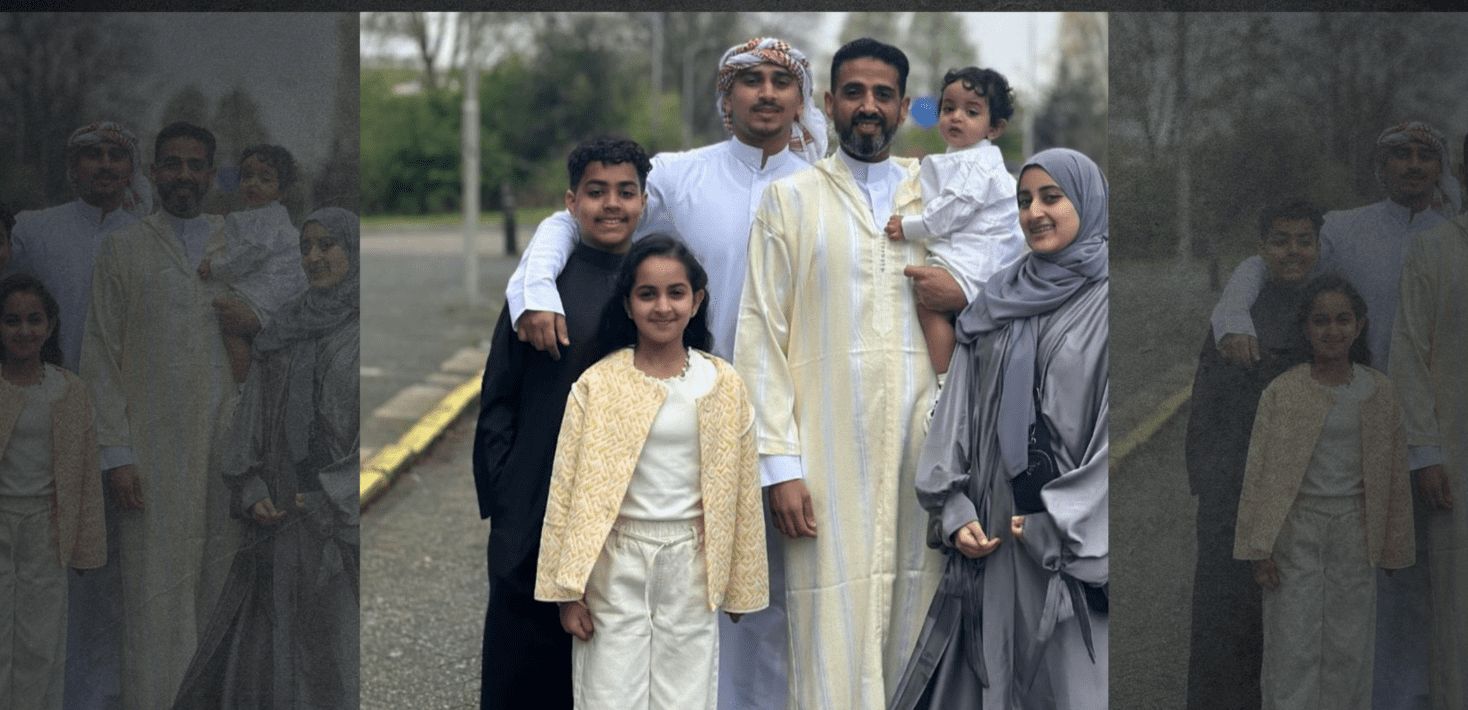Saudi Arabian authorities must immediately release Fahd Ramadhan, a Yemeni-Dutch national, who has been arbitrarily detained without charge or access to legal representation for over six months, Amnesty International said today.
On 20 November 2023, two days after arriving in Saudi Arabia, Ramadhan received a call from the Criminal Investigation Department in Jeddah, asking him to report to the police without further explanation. Upon arrival at the police station that same day, security forces arbitrarily detained him without giving him a reason or allowing him to contact a lawyer. He was allowed to make a brief call to his wife but was not allowed to inform her where he was being detained.
“It is outrageous that the Saudi authorities have put Fahd Ramadhan behind bars for over six months now without charging him with any crime or giving him an opportunity to challenge his detention, all the while denying him access to adequate medical care and legal representation,” said Dagmar Oudshoorn, Amnesty International’s Director in the Netherlands.
“The Saudi authorities must release Ramadhan immediately unless there is evidence pointing to the reasonable suspicion of his involvement in a criminal offence that does not violate international human rights law and standards. Pending his release, Ramadhan should be allowed adequate medical care, access to legal representation and regular visits from the Dutch Embassy in Riyadh.”
Ramadhan was born in Saudi Arabia and had returned to the country on 18 November 2023 to gather paperwork to complete an application for citizenship in the Netherlands, where he has been granted asylum protection since 2018.
After arresting him on 20 November, authorities held Ramadhan in incommunicado detention between 21 November 2023 and 1 January 2024. When Ramadhan’s sister was allowed to visit him on 1 January 2024, he told her that his interrogation had ended, but that he did not have any legal representation and was unaware of any formal charges against him.
Given Saudi Arabia’s grim record of arbitrary detention, it is imperative that Dutch authorities advocate for Fahd Ramadhan’s immediate release and ensure that he is allowed to return to the Netherlands.
Dagmar Oudshoorn, Amnesty International’s Director in the Netherlands
In January 2024, Ramadhan’s family appointed a lawyer who tried to visit him in prison but was not allowed to see him. According to the family, the lawyer was told by prison authorities that he should not interfere in the case.
In May, Ramadhan told his family that he was not receiving adequate medical care for his diabetes.
In February 2024, Ramadhan received Dutch citizenship. Officials from the Dutch embassy in Riyadh were allowed to visit him in prison on 21 March. He told them that a few years ago, he had sympathized online with a critic of the Saudi royal family and believed that was the reason for his detention.
Amnesty International has documented the Saudi authorities’ increasing crackdown on freedom of expression, targeting both citizens and foreign nationals, many of whom have been sentenced to lengthy prison terms solely for peacefully exercising their rights to freedom of expression, association and assembly. This includes criticizing the government and its policies.
Legal proceedings in these cases fall far short of international fair trial standards. Individuals are often held incommunicado without charge, in solitary confinement, and denied access to lawyers or the courts to challenge the lawfulness of their detention.
“Given Saudi Arabia’s grim record of arbitrary detention, it is imperative that Dutch authorities advocate for Fahd Ramadhan’s immediate release and ensure that he is allowed to return to the Netherlands,” said Dagmar Oudshoorn.


